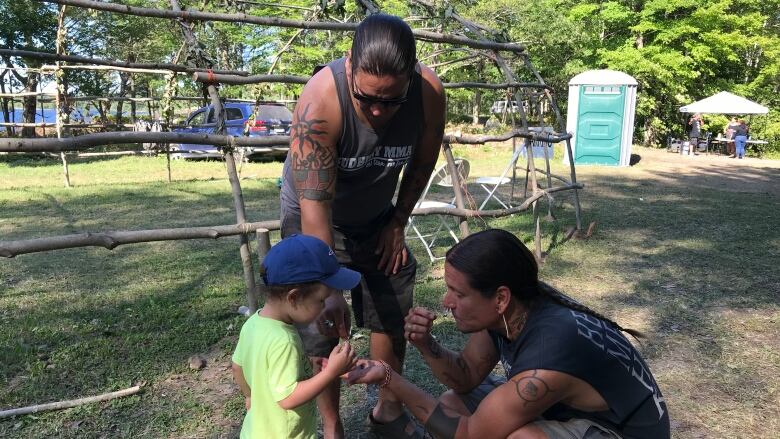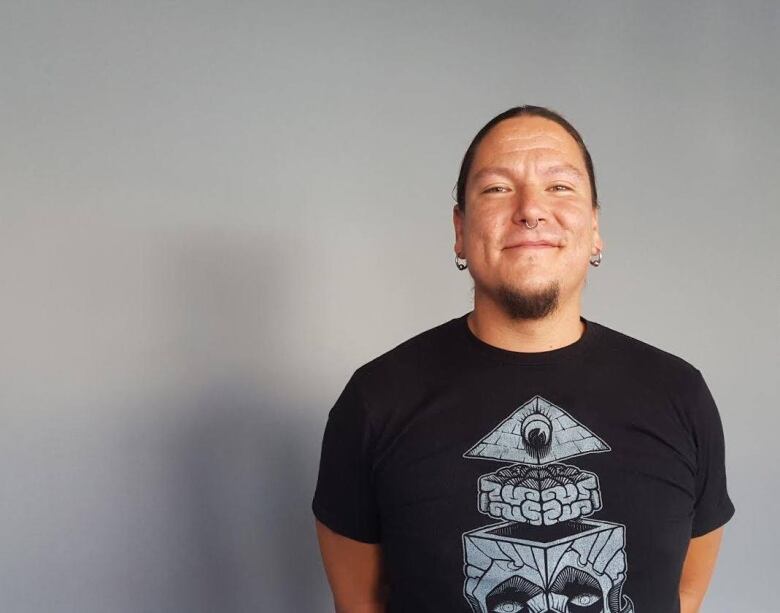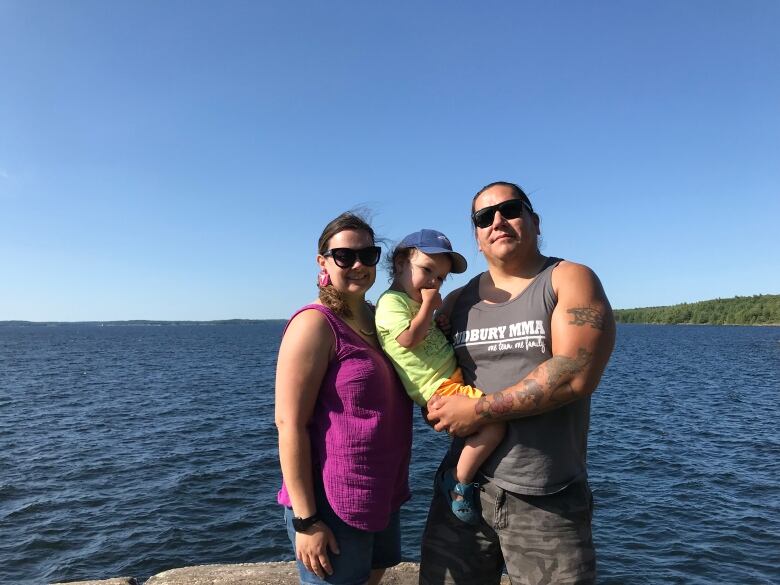Anishinaabe brothers work to learn and embrace traditional language
'I'm getting there but there's still lots of work to do,' Mskwaankwad Rice says

Learning your culture and keeping a traditional language alive is important to many members of the Rice family.
Former Up North host Waubgeshig Rice showcased learners and speakers of various Indigenous languages spoken across northern Ontario in his feature, Living Languages. It started in 2019 when the United Nations declared it was the Year of Indigenous Languages.
But keeping the Anishinaabemowin language and culture alive is a family effort.
His brother Mskwaankwad Rice, is a masters student in linguistics at the University of Minnesota in Minneapolis. He's also the co-founder of the grassroots Ojibwe language initiative Eshki-Nishnaabemjig.
"As early as a teenager, I recognized that our late grandmother was the last speaker in our family and when she was gone, we wouldn't have a speaker anymore," Mskwaankwad said.
"That was a real motivator for me."
He says in 2012, he made a decision to really dedicate time to learn his language.
"It's been a long journey and I'm getting there but there's still lots of work to do," he said.
Part of his journey to learn the language included leaving his city life and living back at home in Wasauksing First Nation to be close to his grandmother and other elders who could share their knowledge.
"I wanted to be close to speakers because they are the best resources for learning the language," he said.
A few years ago, he and other learners of the language came together to discuss the challenges of learning.

"We all attended an immersion program in Minnesota," he said. "It really helped the second language learner to actually use the language instead of just learning how it works."
They decided to set up a similar program in Ontario, leading to the creation of Eshki-Nishnaabemjig. It's a two week immersion program that runs each summer. Due to the current pandemic, they've been forced to cancel the in-person program this year.
Mskwaankwad says instead, they're reaching out to past students to do online lessons for new learners.
"A second language learner has a really good perspective because they have been through the common difficulties we face trying to learn Anishinaabemowin as adults," he said.
"These people are really experienced in learning and can offer a lot of good support."
Waubgeshig admits it's a difficult journey learning a new language as he embarks on that himself. He's shared his story of learning his language on CBC's Unreserved program.
He and his wife Sarah aren't fluent Anishinaabemowin speakers, but they want it to be a part of their family. There are no early immersion programs for childrenin Sudbury, so they're working to learn and teach as much as possible.

His brother Mskwaankwad offers advice to those looking to connect with their culture through learning a language.
"There's not one specific program or course or teacher that's going to help you become fluent in Anishinaabemowin," he said.
"A big barrier is time and accessibility and now that some people have more time on their hands and the accessibility of the internet, it's kind of why [we're] doing these online lessons."












_(720p).jpg)


 OFFICIAL HD MUSIC VIDEO.jpg)
.jpg)



























































































